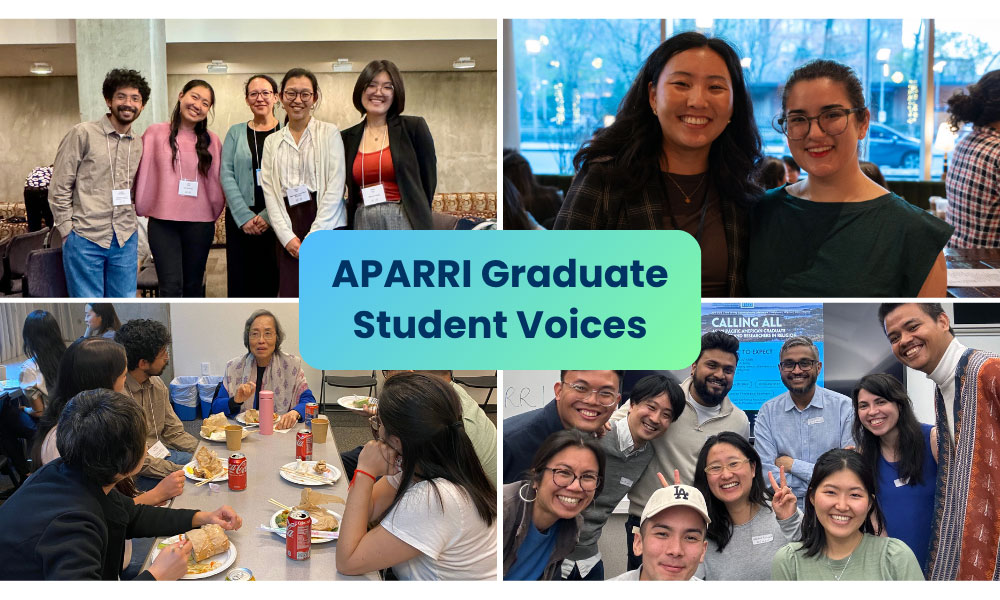One of the unique aspects of APARRI is our commitment to mentorship and support across all career stages. We aim to elevate the scholarship, activism, art, and community leadership of all of our members—including and especially graduate students. At the APARRI 2025 conference, we made space for our graduate students through a mentoring lunch, a graduate student social, participant-led roundtables, and more. Below are some APARRI 2025 testimonials from graduate students who experienced what we call the “APARRI Magic.” We can’t wait to welcome graduate students back to APARRI next year!
Libby Kao (UC Berkeley): I left this year’s APARRI thinking of the word “oasis” — a place of replenishment and green that emerges more precious and urgent depending on how long or tough a journey the rest of the year might’ve been. It is only my second time participating, but it would’ve only taken one time to notice that APARRI has made it normal to care about each other. They may call it “magic,” but not the kind that emerges out of thin air; APARRI makes clear that it is thoughtful labor that sets the conditions for our thriving.
Shashank Rao (University of Toronto): APARRI is a really encouraging and inspirational place to be as an Asian American scholar-in-training. Even if people don’t work on things you do, they’re so open to thoughtful and generative conversations.
Karis Ryu (Yale University): APARRI is a unique intellectual and collegial community I deeply appreciate getting to be a part of, where certain parts of my work, my method, and myself, in the most generous of conversations don’t have to be explained or justified to be taken seriously. APARRI is a space where I can be honest in my growth, my questions, and my experimentation as a scholar, a writer, and a thinker.
Sarah Oh (Vanderbilt University): I found this conference through a Google search and did not know what to expect. But this was one of the most wholesome gatherings of academics I’ve been to—where we acknowledged that we have hearts, hands, and body beyond the mind.
Laura Snell (UC Santa Barbara): APARRI presents an invaluable opportunity to connect with other scholars working on Asian American and Pacific Islander religions. While I am lucky to have a small but strong community in the Asian/American Studies Collective at my home institution, this was the first time I have been able to speak and think with so many people working in the religious studies subfield.
Karina Yum (Harvard Divinity School): I leave APARRI once again feeling like I belong in academia, like my research is worthwhile and exciting, and, most importantly, empowered enough to continue doing it. I would absolutely not be who I am today without APARRI.
Derek Wu (UC Berkeley): Thanks to the careful designs of its leadership, APARRI’s annual conference proves that academic conferences can be places of both exceptional academic rigor and collective care. The level of professional development I receive at APARRI far exceeds what I have experienced in other academic settings because the leadership prioritizes an atmosphere of vulnerability. In a period when the very purpose of academic work is being questioned by artificial intelligence, APARRI’s conferences model how cutting-edge scholarship necessarily derives out of communities of care.
Kara Gordon (Fordham University): APARRI is such a magical community that lives out what it preaches: solidarity, excellence, and commitment. They’ve created a space in which masks can be taken off and where I feel my work is both legible and welcome.

